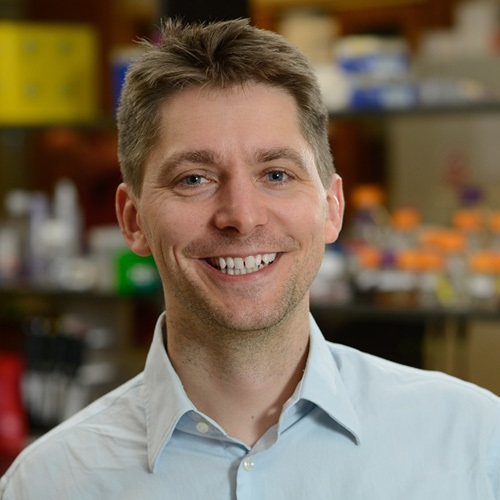Manuel Kleiner

Assoc Professor
Microbiomes and Complex Microbial Communities Cluster
Department of Plant and Microbial Biology
Thomas Hall 4510B
mkleine@ncsu.edu WebsiteBio
Microbial communities are ubiquitous in all environments on Earth that support life, and they play crucial roles in global biogeochemical cycles, plant and animal health, and biotechnological processes. However, most microbial species from a given habitat cannot be cultured and thus cannot be experimentally characterized in the laboratory. Therefore, to study environmental microbes we rely on so-called cultivation-independent methods that allow us to study microorganisms directly in their environment.
We study the metabolism, physiology, and evolutionary ecology of microbial symbioses and uncultured microorganisms. To this end we develop and use cultivation-independent approaches such as metagenomics, metaproteomics, and metabolomics, as well as more targeted approaches such as enzyme assays, single-cell imaging methods, and stable isotope-based experiments. We combine the study of uncultured microorganisms with genetic, molecular, and biochemical studies on cultivable microorganisms to gain an in-depth understanding of specific metabolic pathways and physiological strategies.
The current projects focus on:
- factors governing energy efficiency of metabolism in free-living and symbiotic bacteria, looking specifically at a novel CO2 fixation pathway
- the role of horizontal gene transfer in the metabolic evolution of bacterial symbionts
- development of cutting-edge methods for microbial community analyses focusing on metagenomics and high-end mass spectrometry based metaproteomics
Learn more at https://kleinerlab.cals.ncsu.edu/
Education
Diploma Biology University of Greifswald, Germany 2008
Ph.D. Marine Microbiology Max Planck Institute for Marine Microbiology, Germany 2012
Area(s) of Expertise
Microbial physiology and metabolism, bacteria-animal symbiosis , metagenomics and metaproteomics, environmental microbiology, marine microbiology, and renewable resources
Publications
- A Minimal Medium for Culturing Maize Root-Associated Microbes Based on a Plant Growth Medium , Phytobiomes Journal (2026)
- A Minimal Medium for Culturing Maize Root-Associated Microbes Based on a Plant Growth Medium , (2025)
- Adaptations in gut Bacteroidales facilitate stable co-existence with their lytic bacteriophages , Gut Microbes (2025)
- Assessing the diversity and functional profile of the “microbial proteome” in fermented foods , bioRxiv (Cold Spring Harbor Laboratory) (2025)
- Comparative Genomics of the Endosymbiont Cardinium Causing Reproductive Manipulation in Encarsia Parasitoid Wasps , MicrobiologyOpen (2025)
- Comparative Performance of Scribe and Database Search Engines in Metaproteomic Profiling of a Ground-Truth Microbiome Dataset , (2025)
- Comparative performance of Scribe and database search engines in metaproteomic profiling of a ground-truth microbiome dataset , Journal of Proteomics (2025)
- Data‐Independent Acquisition Mass Spectrometry as a Tool for Metaproteomics: Interlaboratory Comparison Using a Model Microbiome , PROTEOMICS (2025)
- Dietary protein from different sources escapes host digestion and is differentially modified by gut microbiota , Food & Function (2025)
- Dietary protein source alters gut microbiota composition and function , The ISME Journal (2025)